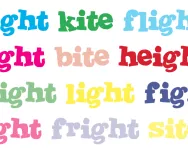4 ways to bring poetry to life for your child

The new literacy curriculum not only suggests that your child read poetry at school, but also that they learn it by heart.
It may seem a daunting task, but reading, learning and reciting poetry has many benefits for children. It helps them learn to express themselves and gain a greater understanding of verse and language. It’s a great confidence booster, and also helps children to explore thoughts and feelings. Poetry is also a brilliant tool for communication.


Download a FREE Creative Writing toolkit!
- KS1 & KS2 workbooks
- Bursting with fill-in prompt sheets and inspiring ideas
- Story structure tips, style guides and editing suggestions
So how can you help your child to develop a lifelong love of poetry?
Make the words come alive
Although the new national curriculum requires children to recite poems by heart, it’s easy for performances to become mechanical and to lose the meaning and beauty of the poem. In addition, if your child isn’t confident in presenting, they may feel nervous and anxious, and the message of the poem will be lost on them. This could, ultimately, put them off poetry for life.
Instead of making your child learn poems by heart at home, use a variety of different methods to make them come alive. One way to do this is to start by looking at rap music as a form of poetry. This helps to get children excited, which in turn leads to a better understanding of the poem. Making poetry fun to learn will help to keep your child’s interest.
Tap into your child’s creativity
There is a lot more to poetry than reciting words on paper: the words can have different interpretations, which can bring out your child’s creative side. Try using music, instruments, acting or dance to help your child express themselves in their own way. This will help to change their perception of poetry and encourage them to engage with the poem.
Get involved
As your child’s role model, you need to be inspired yourself if you’re to help them see the magic and fun in poetry. Consider acting out a poem, or try different accents to make it more fun. Read aloud with your child, or put on plays at home, using music and costumes to make an impact. This also introduces your child to intonation and performance. Encourage your child to write their own poetry, giving them a prompt such as ‘my favourite day out’ or ‘the best birthday party ever.’
Support them with school work
Find out which poems your child is learning at school so you can support them at home, but also provide lots of opportunities to read other poetry as a family. If your child feels comfortable reading and studying poetry at home, they will feel more knowledgeable and confident in the classroom. By understanding and enjoying poetry, they will develop creativity and expression that will help them in all areas of life.
Adisa the Verbaliser is a stalwart of the London performance poetry circuit. His poetry is included in Rising Stars’ Poetry by Heart resource, which helps teachers to build children’s understanding and appreciation of poetry.

Give your child a headstart
- FREE articles & expert information
- FREE resources & activities
- FREE homework help








